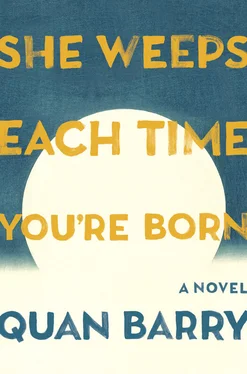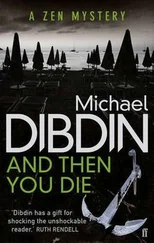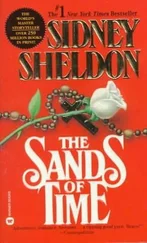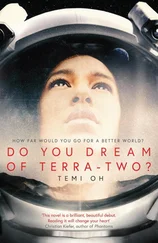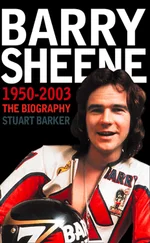We took a dozen of them up over the ridge. I picked a spot, but An said no, there was more shade just a few hundred feet over. Like he was trying to make their last moments on earth more comfortable. I didn’t argue. I thought the shadows might be good. Keep their faces in the dark. I could feel my knees trembling. Twelve human hearts beating in my hands. I thought I was going to be sick. Somehow I was on the front lines and I had never killed anyone that I knew of. But I kept going because we all kept going — An, me, the constant flies, even the men marching onward, one of them smiling like he was just out for a walk.
I thought they knew. It made me mad. Every one of us playing his part. When the war with the Americans ended, I thought I’d never have to look at another dead body. Bodies clogging the rivers. Bodies sitting upright in their houses like they were waiting for a visit. We stopped walking and told them to start digging. One of them started to talk to the others in their language. I thought they were trying to figure out if they could overpower us. Twelve of them and two of us and one of us An, green as a leaf. I put the gun up to one of their faces. The man looked tired. Too tired to even flinch.
It took them three hours to dig a trench. They had no reason to work hard. I thought they just wanted it to be over. We didn’t know then what had been happening in Cambodia, everyone starving and a quarter of the population dead. The smiling man crawled out of the trench and surveyed their work. He looked pleased with what they’d accomplished. He went around patting the other men on the back. They didn’t just shrug him off, so I knew they somehow valued him.
An and I decided how we wanted to do it. Then An was miming what we wanted, but none of them would turn around. It was then I realized they didn’t know we were going to shoot them. In Cambodia, they killed people with clubs and hoes, smashing them in the back of the head. It never occurred to them we might actually shoot them, that they were worth spending a bullet on.
One of the men started walking back down the hill. I imagined him making it all the way back to camp. The way everyone would laugh at us, saying An was the reason the south lost the war. Then someone would come right back up there and kill all of them. If it was the teenagers, maybe they’d cut up their faces, pull out their teeth even before they were dead.
I could hear a red-vested parakeet singing in the trees, Tu said, its song like a man’s whistling. You don’t hear them much anymore. Birds just go where they want. Nothing to keep them from flying away. Listening to its song I knew what we had to do. Everything was a mess. Vietnam was a mess. Cambodia was a horror. Ever since reunification, rumors of people just sailing away across the sea for the chance to be free and start all over again. We could do it. Me and An and these men who had seen the worst. We could do it if we all stayed together. We could be our own army, build ourselves a new home, but the one Cambodian was walking away back to camp as if the day’s work were over. He was walking away from what we could become. Stop, I said, but he kept walking.
For the second time I raised my gun. I don’t remember what I was aiming for. Suddenly it felt like I’d been punched in the shoulder, my arm jerking back from the recoil. The parakeet went fluttering up out of the tree. I could smell the smoke weaving itself into the fabric of my clothes. The man who was always smiling looked puzzled. He ran to where the man I’d just shot in the back had fallen, but when he turned him over, there was blood on the man’s lips. With every lungful there was more of it, the blood coming out with every breath. At the sight of the blood the smiling man’s face crumbled.
It took them days to trust us. Even after An helped one of them remove a small burr stuck in his eyelashes. Even after I burned an infected leech off someone’s leg. You could still see it floating in their eyes. Like a dog that’s been beaten its whole life, the constant suspicion. A few of them could speak Vietnamese but were pretending that they couldn’t. I realized it one day as I was talking to An. We were talking about how our families lived in the same spot on the river, how it was fated. I looked over and noticed two of them straining to hear what I’d been saying. You understand me, I said. They just looked at me, but from that point on I talked to them in a normal voice. By the time we reached the river, one of them had started openly translating. We began making better time.
After I shot the man, An and I dragged him into the trench and buried him so that his hand was barely visible. That way it would look like he was one of many. Then we pointed the guns at the others and told them to run. An in the front, me in the back. It took us sixteen days to reach Ba Nuoc. All we had were our two guns and their hoes. They were used to living off the land. Once we shot a bear. The smiling man, Arun, roasted the kidneys. That night Arun said each of us was infused with the strength of the bear. The only thing that could stop us was steel.
Rabbit heard noises. She realized her father was crying. I still see him sometimes, Tu said. Only in my dreams I shoot him in the face and not in the back. His head comes straight up off his neck, the blood pumping like a fountain. An says we killed one to save them all, but An didn’t kill him. He didn’t see the blood lacing the man’s breath. The feeling as if my arms were bathed in it all the way up to the shoulders.
After a while Qui rolled off her mat and onto Tu’s. Rabbit had never seen anything like it. There had never been a man in any of their houses. The way Qui’s back arched in the moonlight, hips locked, the muscles tensing in her thighs, her body riding over him, cresting, the long black hair rippling down her back like water, the bloody diamond on the side of Tu’s face flushed a darker shade of red, and the way Qui, who never said a word, said many, though Tu put his hand on her mouth to keep them from spilling out.
My father killed a lot of men, repeated Son. Rabbit knew they should move below deck. The tops of her ears were beginning to burn. When the little girl came limping back, they would move downstairs. She wondered why Son needed to believe his father was a killer. Anytime she went near the pilothouse the voice called to her, her ears as if on fire. The voice saying please. Take whatever you want.
A thief finds a golden ax deep in the forest. Even before he picks it up he knows it will be light as water, strong as diamonds. With such an ax the thief could cut his way into anything, penetrate any wall, dominion at last over the hills and vales of the world. In his excitement to master the ax, the thief rips his own thigh open all the way to the groin. Eventually in his search for relief the thief begins climbing a mountain up to the home of the gods, the blood spoor soaking the earth. As the thief rifles through the gods’ domain, he stumbles upon a thing of infinite value locked away in a wooden chest. He cannot believe his good luck. Without hesitating the thief begins to pack his wound with it, the pain lessening as the injury fills, and in time he smuggles the thing back down the mountain following the trail of his own blood. In a wet place between two rivers the thief lays his body down to sleep, and in his sleep his body breaks into blossom. When we eat, we eat of him. How rice enters the world .
THE ROOSTER AND HEN HAD PRODUCED MORE FAT THAN EXPECTED. Arun said the makeshift oil would last three more days. Since Hai had poured it in the motor, the smell of cooked chicken wafted over the boat. The smell made their mouths water. They were only allowed a spoonful of rice twice a day and two pulls of water from the jug. They had been out at sea for five days. Sometimes Duc would cut the engine and let them drift to save fuel. Now he kept the boat running. Since morning, the mystery boat Rabbit and Tu had spotted before the storm had been trailing them in the distance. Among the waves the strange craft glinted like a tooth.
Читать дальше
